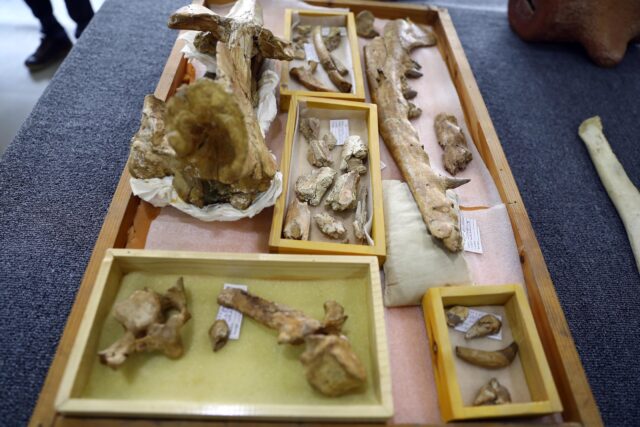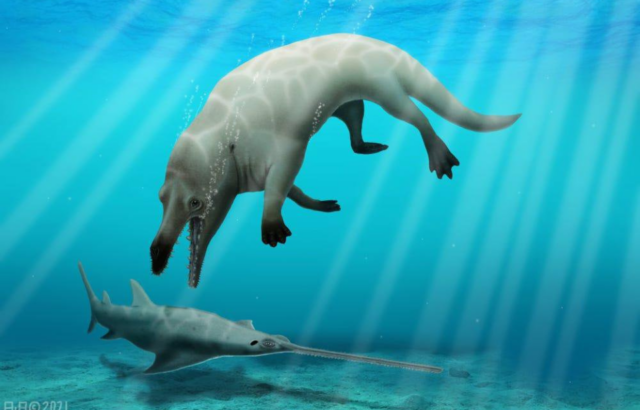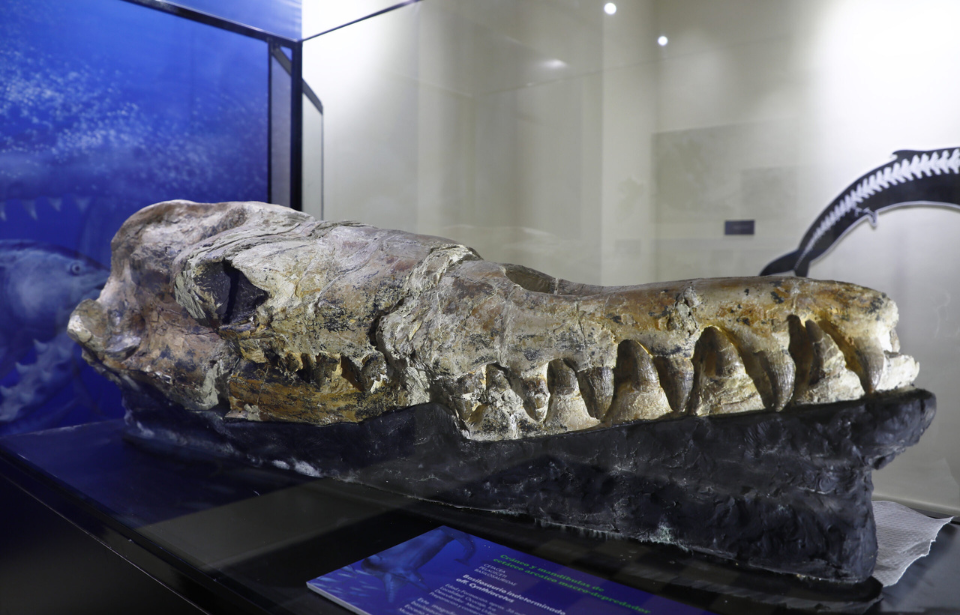Whales have not always been the same creatures we know and admire today. In 2021, paleontologists discovered the 43-million-year-old fossil of a prehistoric whale in the Egyptian desert, which has provided new information about the evolution of the species. The prehistoric whale has been officially named Phiomicetus anubis, after the Egyptian god of the afterlife, Anubis. In a show of just what kind of animal it was, it’s been given the nickname the “God of Death.”
Discovering the ‘God of Death’

The unusual whale was discovered in the Fayum Depression of Egypt’s Western Desert, which was once completely underwater. The region, a UNESCO World Heritage site, is known as Whale Valley due to the number of marine mammalian fossils that have been found there. According to an article published in the peer-reviewed journal Proceedings of the Royal Society B, the discovery shows the evolution of the species “from herbivorous, deer-like, terrestrial mammals into carnivorous and fully aquatic cetaceans.”
The new discovery is part of a group called Protocetids, semi-aquatic whales that would have roamed the earth during the Eocene period, 56 million to 33.9 million years ago. The partial skeleton presented a deadly predator worthy of its name. Phiomicetus anubis had a large set of jaws with sharp teeth as well as four legs and webbed feet. The Protocetid was 10 feet long and had a weight of around 1,300 pounds. Its head, which was shaped like a jackal’s, would have lent to the creature’s “raptorial feeding style.”
The study’s lead author, Abdullah Gohar, a Cetacean paleobiologist at Mansoura University in Egypt, told Matthew Low of Insider, “We discovered how fierce and deadly its powerful jaws are capable of tearing a wide range of prey… this whale was a god of death to most of the animals that lived in its area.”
A key discovery

Gohar told Mahamoud Mourad of Reuters, “Phiomicetus anubis is a key new whale species and a critical discovery for Egyptian and African paleontology.” And while it is also thought to be the oldest semi-aquatic species to be found in Africa, it is not the first whale with legs to be discovered.
In the Fayum Depression, where Phiomicetus anubis was discovered, similar fossils have been found. The first was unearthed by German paleontologist Eberhard Fraas in 1904.
More recently, in 2011, the fossil of a 43-million-year-old whale with legs, webbed feet, and hooves was discovered in Peru. The 13-foot-long whale could, like the ‘God of Death,’ hunt both on land and in the water. This example showed that Protocetids once roamed the entire globe.
A breakthrough for researchers

Gohar said, “This paper represents a breakthrough for Arab paleontologists… this science remained the preserve of foreign scientists for a long period of time, despite the richness of the Egyptian natural heritage with important fossils of the ancestors of whales.”
More from us: Powdered Wigs Have a Decidedly Unglamorous Origin Story
This is a great discovery shedding more light upon Protocetids, which have not entered the popular imagination as commonly as other prehistoric animals have. That being said, we’re glad that Phiomicetus anubis is no longer roaming the Earth. If it were, we’d never go back into the water.
Let us know what you think in the comments below.
